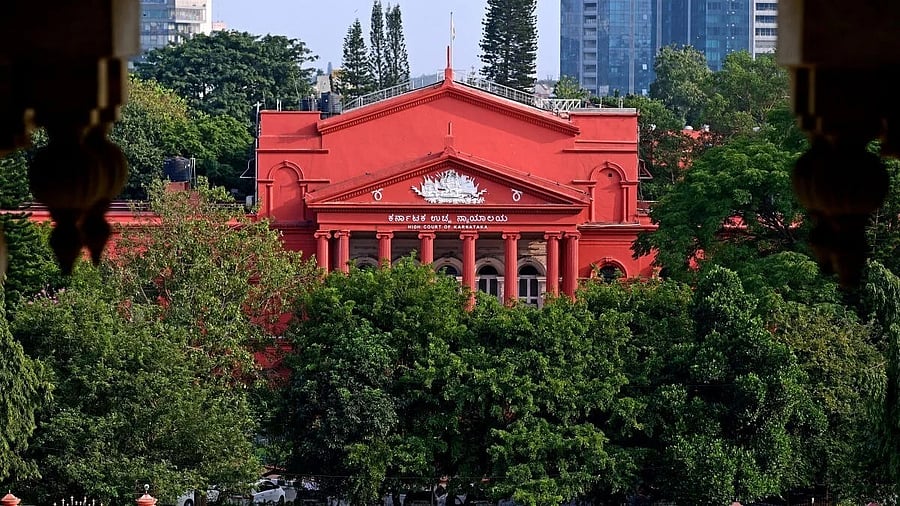
The Karnataka High Court
Credit: DH Photo
Bengaluru: The Dharwad bench of the High Court on Tuesday quashed the order passed against Adrushya Kadeshwara Swamiji, a prominent religious leader and pontiff of Kaneri Math, Kolhapur district, Maharashtra, prohibiting his entry of into the limits of Dharwad district. The prohibitory order was passed by the Deputy Commissioner, Dharwad, on November 4, 2025, invoking Section 163(4) of the BNSS, 2023, citing the law-and-order issue. The order prohibited the entry of the swamiji to the limits of Dharwad district for the period commencing from November 5, 2025, to January 3, 2026.
Challenging this order, the Swamiji argued that the power to pass a prohibitory order under BNSS section 163 was used by the state with mala fide intention and extraneous considerations, and without any notice to him as to the basis on which the order would be passed.
On the other hand, the state government submitted that the Swamiji, despite the Apex Court's observation in earlier proceedings, continued to speak in the same manner that he spoke earlier. Therefore, as a matter of abundant caution, apprehending that he would generate disharmony amongst the people of the locality, the order was passed.
Justice M Nagaprasanna noted that the order is wholly indefensible and unsustainable when examined on the touchstone of the principles delineated by the Apex Court as well as different High Courts. “The order fails to record the existence of any emergent situation that could conceivably justify a restraint enduring for as long as two months. The mere fact that the statute permits a maximum duration of two months does not bestow upon the authority a license to exercise such power in a cursory and cavalier manner as reflected in the present case,” Justice Nagaprasanna said.
The court further said, “There is an absence of any record for subjective satisfaction on the part of the respondent that an ex-parte order was warranted. Equally absent is any indication of a prevailing emergency vis-à-vis the petitioner that could justify a restraint of such disproportionate length.”